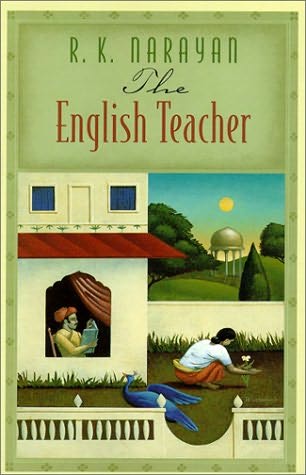 "Between thought and fulfilment there is no interval. Thought is fulfilment, motion and everything. That is the main difference between our physical state and yours. In your state a thought to be realized must always be followed by effort directed towards conquering obstructions and inertia--that is the nature of the material world. But in our condition no such obstruction exists. When I think of you or you me I am at your side. Music directly transports us. When I think of a garment, it is on me. In our world there is such a fine response for thought. When I come to you I prepare myself every time as befits the occasion. I come to meet my lord and I dress myself as befits the occasion. I think of the subtlest perfume and it already pervades my being; and I think of the garment that will most please you: the wedding saree, shimmering purple woven with gold, I have it on me at this very moment. You think you saw it in that trunk, how can it be here? What you have seen is its coutnerpart, the real part of the thing is that which is in thought, and it can never be lost or destroyed or put away."
"Between thought and fulfilment there is no interval. Thought is fulfilment, motion and everything. That is the main difference between our physical state and yours. In your state a thought to be realized must always be followed by effort directed towards conquering obstructions and inertia--that is the nature of the material world. But in our condition no such obstruction exists. When I think of you or you me I am at your side. Music directly transports us. When I think of a garment, it is on me. In our world there is such a fine response for thought. When I come to you I prepare myself every time as befits the occasion. I come to meet my lord and I dress myself as befits the occasion. I think of the subtlest perfume and it already pervades my being; and I think of the garment that will most please you: the wedding saree, shimmering purple woven with gold, I have it on me at this very moment. You think you saw it in that trunk, how can it be here? What you have seen is its coutnerpart, the real part of the thing is that which is in thought, and it can never be lost or destroyed or put away."Indian writer RK Narayan once sent the manuscript of his first novel, Swami and Friends, to a friend in England asking that, if he couldn't find a publisher for it, it would be thrown into the Thames, wrapped around a brick. His friend couldn't find one, but he also happened to have a friend in Graham Greene, who read the novel and determined to have it published. That was the 1930's, and Narayan and Greene maintained a long friendship by correspondence that lasted most of their very long lives--Greene died in (wow) 1991.
The eponymous teacher of The English Teacher is Krishna, a college instructor in a town called Malgudi who lives apart from his wife, Susila, and young daughter, Leela. He is not displeased by this, but when Susila decides to bring Leela to Malgudi that they might live as a family, he finds that the small details of marriage and fatherhood are infinitely more pleasing than his bachelor life. This first half of the book, in which Krishna comes to love his family, is unexceptional by design; teasing from the mundane intricacies of normal life a picture of largely untroubled domestic happiness.
And then Susila contracts typhoid, and dies. Supposedly this is based on the death of Narayan's own young wife, who also left a small child behind. Krishna is, of course, heartbroken, and returns quite bitterly to his normal routines as an English teacher until presented with a strange letter from a student, whose father has written to Krishna claiming that he has been contacted by Susila from the spirit world. Krishna visits this man, who conducts a sort of weekly seance between Krishna and Susila, until the time that Krishna learns to communicate with the world of the dead himself. In the passage I have quoted above, Susila tells Krishna how, in the spirit world, to think of a thing means to be with it, and accordingly, Krishna and Susila are never forced apart, even by death. It's simply done but arresting, and all the more touching knowing that such a book must have originated in Narayan's desire to be with his own wife again.
Graham Greene-o-Meter: Seven Greenes out of ten. Not very Greenesque, except maybe in the tightness and economy of the prose. Worth checking out.

3 comments:
Sounds interesting. What's with the Greene-o-meter? I've noticed it cropping up lately.
It's Graham Greene month!
Ah, I went back a few posts and found the announcement. Have fun.
Post a Comment